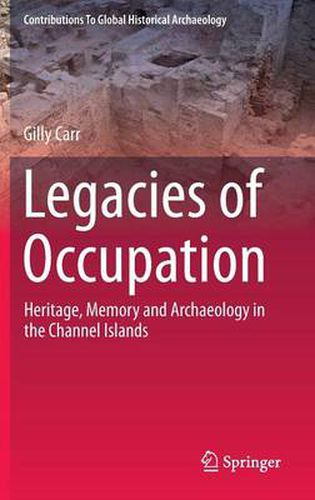Readings Newsletter
Become a Readings Member to make your shopping experience even easier.
Sign in or sign up for free!
You’re not far away from qualifying for FREE standard shipping within Australia
You’ve qualified for FREE standard shipping within Australia
The cart is loading…






This title is printed to order. This book may have been self-published. If so, we cannot guarantee the quality of the content. In the main most books will have gone through the editing process however some may not. We therefore suggest that you be aware of this before ordering this book. If in doubt check either the author or publisher’s details as we are unable to accept any returns unless they are faulty. Please contact us if you have any questions.
This book explores the way in which the legacy of the German occupation of the Channel Islands has been turned into heritage (or, conversely, neglected) over the last 70 years. Once seen as the ‘taint of the mark of the beast’, the perception of much of what the Germans left behind has slowly changed from being despised and reviled, buried underground or dumped at sea, to being reclaimed, restored, highly valued and treated as ‘heritage’. This book examines the journey of various aspects of this heritage, exploring the role of each post-war generation in picking at the scar of occupation, refusing to let it heal or fade. By discovering and interpreting anew their once-hated legacy, each generation of Channel Islanders has changed the resulting collective memory of a period which is rapidly moving to the edge of living memory. It includes the first in-depth investigation into the multiple aspects of heritage of occupation of a single place and will offer comparative material for other heritage professionals who work with similar material throughout Europe and in other post-occupation areas. It will explore the complex ethical issues faced by anyone who works with the legacy or heritage of Nazism, seeking to understand how and why the Channel Islands have responded in the way that they have and asking how unique - or typical for formerly-occupied Europe - their response has been.
$9.00 standard shipping within Australia
FREE standard shipping within Australia for orders over $100.00
Express & International shipping calculated at checkout
This title is printed to order. This book may have been self-published. If so, we cannot guarantee the quality of the content. In the main most books will have gone through the editing process however some may not. We therefore suggest that you be aware of this before ordering this book. If in doubt check either the author or publisher’s details as we are unable to accept any returns unless they are faulty. Please contact us if you have any questions.
This book explores the way in which the legacy of the German occupation of the Channel Islands has been turned into heritage (or, conversely, neglected) over the last 70 years. Once seen as the ‘taint of the mark of the beast’, the perception of much of what the Germans left behind has slowly changed from being despised and reviled, buried underground or dumped at sea, to being reclaimed, restored, highly valued and treated as ‘heritage’. This book examines the journey of various aspects of this heritage, exploring the role of each post-war generation in picking at the scar of occupation, refusing to let it heal or fade. By discovering and interpreting anew their once-hated legacy, each generation of Channel Islanders has changed the resulting collective memory of a period which is rapidly moving to the edge of living memory. It includes the first in-depth investigation into the multiple aspects of heritage of occupation of a single place and will offer comparative material for other heritage professionals who work with similar material throughout Europe and in other post-occupation areas. It will explore the complex ethical issues faced by anyone who works with the legacy or heritage of Nazism, seeking to understand how and why the Channel Islands have responded in the way that they have and asking how unique - or typical for formerly-occupied Europe - their response has been.